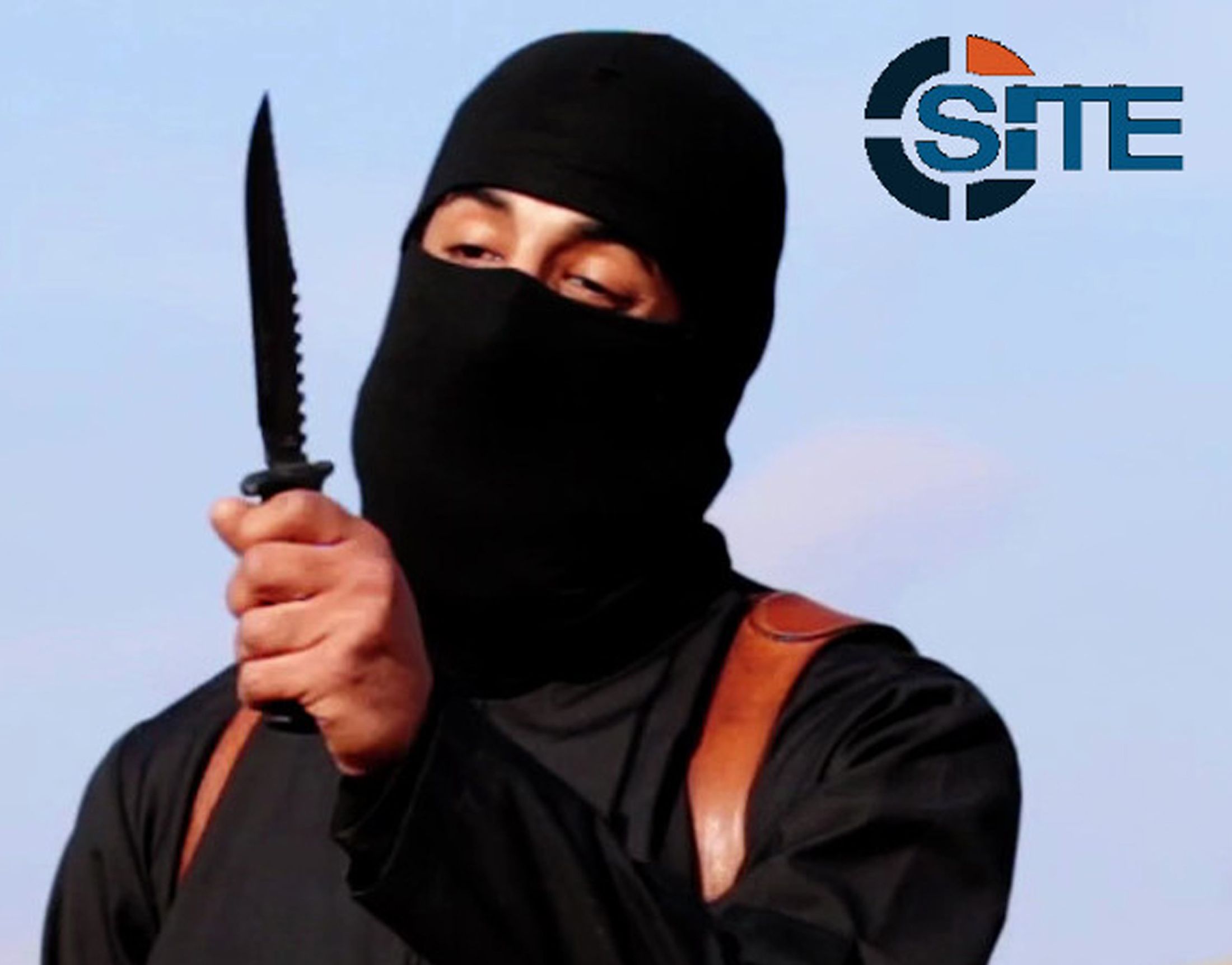
New footage of senior British Islamic State militant group (ISIS) operatives has emerged from the eastern Syrian city of Raqqa, and provides fresh insight into life for foreign fighters inside the group's self-proclaimed caliphate in the Middle East.
The footage, obtained by Britain's Daily Telegraph, shows Mohammed Emwazi, known as Jihadi John; Junaid Hussain, ISIS's top cyber chief; Reyaad Khan, a key recruiter and religious figure for the jihadist group; and sniper Raymond Matimba.
Filmed in November 2014, after a series of executions of Western hostages, it shows the men sitting around in a cafe, laughing and joking as they charge their phones, weapons standing against the wall. The video was secretly filmed by an unidentified ISIS defector, who has now fled Raqqa, despite the threat of execution. It displays the men in an unstaged setting, one very different to the film-like propaganda productions in which its militants have regularly appeared.
Monsters unmasked. British Islamic State members incl Jihadi John who beheaded US & UK hostages.
— Rita Panahi (@RitaPanahi) September 25, 2017
Via @Telegraphpic.twitter.com/tSTuIHAqKD
It is the first footage released of the men inside the caliphate, without their identity hidden by masks. It is also one of the first videos to show some of the most senior leaders of ISIS in their environment at the height of the group's power. The cafe was the one place that the men could hide their identities outside of their homes.
"All of them wore black masks. Jihadi John was special and had a distinctive green one," the source told the Telegraph. "It is the one you can see on his head in the video."
Emwazi became one of the most wanted ISIS fighters for his filmed beheadings of American journalists James Foley and Steven Sotloff, as well as American aid worker Peter Kassig and British nationals Alan Henning and David Haines.
"Emwazi was only violent in the media, but in normal life he was a calm person," the Telegraph's source said. "He spoke quietly and little, but when he did he was respected. He never hurt people in public, he would avoid any contact with civilians on the street.
"Junaid was the IT guy, the controller, the leader. He was the most feared. When he entered the cafe the others would all stand up and look to him. He would tell everyone [what] to do," he said.
The videos that starred Emwazi were publicized around the world and pushed the U.S. into forming a coalition of air forces that would begin a campaign of airstrikes against the group.
The west Londoner, 27, was killed in a U.S. airstrike in November, 2015. Hussain, 21, was a key cyber chief for the group and recruiter of foreign fighters. A U.S. airstrike killed him in August of the same year. A British airstrike killed Khan, who became the first British citizen to be killed by his own country, after then-British Prime Minister David Cameron sanctioned the strike on national security grounds. ISIS sniper Matimba's whereabouts remain unknown.
After ISIS leader Abu Bakr al-Baghdadi declared the creation of the caliphate in July 2014, foreign fighters flocked to join a group that pledged to form a state for the world's Muslims that would be governed by Sharia law, which conforms to an ultraconservative brand of Sunni Islam.
Many traveled to Raqqa as it became the de facto capital of the caliphate, drawn in by the promise of money, true Islam and a better life than in the Western world. But many became disenfranchized, leaving the area and attempting to return home. Many also stayed, but as the group continues to lose territory to ground troops in Iraq and Syria, backed by U.S.-led coalition airpower, many have had to flee for fear that they will be captured by enemy forces.
It has increased the workload for Western security services who fear that militants could return to their home countries and mount attacks, in addition to those supporters of ISIS at home who have carried out attacks after becoming inspired by the jihadist group.
After the deaths of three of the Britons shown in the video, ISIS-inspired attacks have targeted Britain on four occasions this year alone.
They included vehicle-ramming attacks on Westminster Bridge and London Bridge, the latter followed by a stabbing attack by a three-man cell; a suicide bombing at an Ariana Grande concert in Manchester that left 22 people dead; and a partial bomb blast on a subway train in west London that left 30 people injured.
Uncommon Knowledge
Newsweek is committed to challenging conventional wisdom and finding connections in the search for common ground.
Newsweek is committed to challenging conventional wisdom and finding connections in the search for common ground.
About the writer
Jack is International Security and Terrorism Correspondent for Newsweek.
Email: j.moore@newsweek.com
Encrypted email: jfxm@protonmail.com
Available on Whatsapp, Signal, Wickr, Telegram, Viber.
Twitter: @JFXM
Instagram: Read more
To read how Newsweek uses AI as a newsroom tool, Click here.








